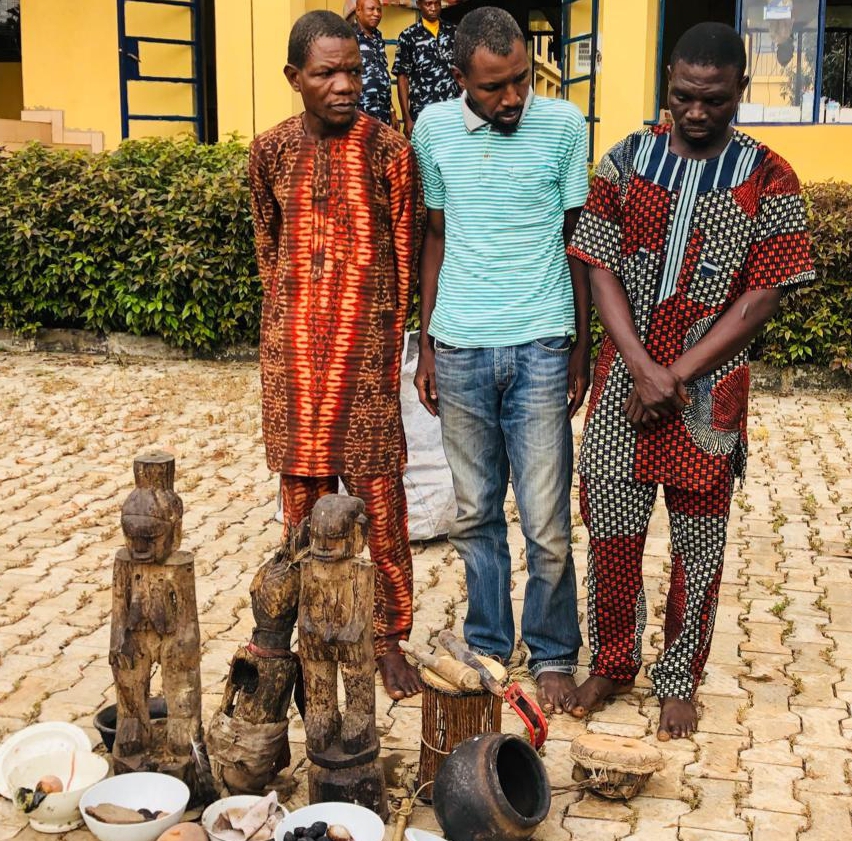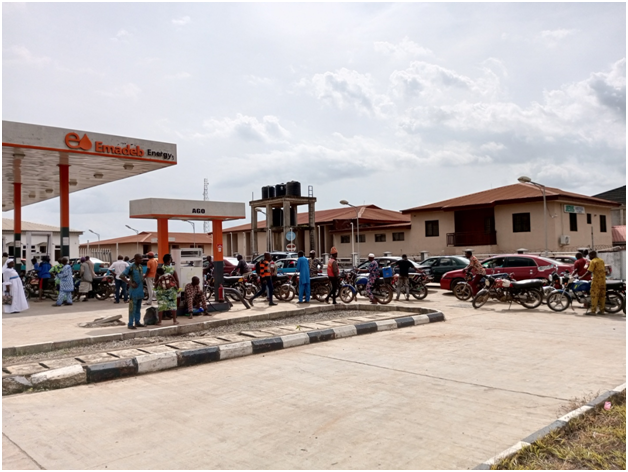Addressing mass abduction of students
By Adedotun Ajayi
|
Since December 2020, more than 700 students have been abducted from schools in north-west Nigeria, highlighting a worrying development in the country’s kidnap-for-ransom crisis.
The authorities say recent attacks on schools in the north-west have been carried out by “bandits”, a loose term for kidnappers, armed robbers, cattle rustlers, Fulani herdsmen and other armed militia operating in the region, who are largely motivated by money.
Recently, gunmen raided a boarding school in northwestern Nigeria early Friday, Feb 26, 2021 and kidnapped more than 300 girls, marking the third mass abduction of children since December in Africa’s most populous nation.
The assailants attacked the Government Girls Secondary School in Zamfara state in a predawn ambush, teachers and residents said, waking up the town as gun shots rang out.
Most—not all—of these mass kidnappings appear to be purely mercenary. These kidnappings are different from Boko Haram attacks in the past where the goal was to kill those who were benefitting from Western education. In the recent instances, kidnappers are after ransom, and appear to try to keep their victims alive. Nigerian federal and state authorities always deny paying ransom. Yet they often do so. Schoolboys and bandits involved in the Kankara abduction contradicted official denials that ransom was paid. Reports said the Katsina State government paid N30 million (about $76,000) to recover the schoolboys. Hence, the expectation should be that unless the Kagara victims are quickly recovered, which is unlikely, either the state or federal government will pay ransom to secure the release of those who have survived.
Nigeria’s President Muhammadu Buhari has condemned the new “inhuman” abduction by gunmen of more than 300 teenage girls from a boarding school in the north-western region of the country.
He affirmed that the administration would not “give in to blackmail from bandits” who are waiting for “the payment of large ransom” — as the government has the capacity to deploy a massive force against them in the villages where they operate. The Head of State also added that the only hindrance is the fear of heavy loss of innocent villagers and hostages who could be used as human shields by the bandits.
The negative effects these terrible incidents have on the students are numerous. One of the abducted students of Federal College of Forestry and Mechanization, Afaka in Kaduna State, Markus Makut that was reportedly released, said he has lost interest in continuing his education, following the abduction of his classmates by bandits who stormed the school hostels at night.
About 30 students, mostly females, were abducted when bandits stormed the college located opposite the premier military university, Nigerian Defence Academy (NDA), at about 11.30 pm that night.
Markus, who was yet to recover from the shock of the ugly incident, said: “We thought we were safe because the school is close to the NDA. Unfortunately, many students have been abducted.
“I have five females and eight males from my department that were among those kidnapped. I have lost interest in schooling.
Samuel Ayodeji, a government teacher in Fiwasaye Girls Grammar School, Akure said “what we are doing here in our school, in order to safeguard our students, are numerous and that’s what make us exceptional. Our students are secure, in as much as they are within the school premises, because we know anytime they are here, they are under our watch and nothing would happen to them. Apart from the government security agencies, we also have our undisclosed internal security system. We monitor our students day in day out. When they come in the morning, we take their attendance from the school gate. We know the total number of students in the school. If anyone is missing on the register, we call on the right authority immediately. We don’t allow any stranger in the school premise.
Even as a parent you have to pass through the Administrative office to get across to your ward. Apart from all these measures we have taken, we also counsel them on the importance of coming to school straight from home and returning home immediately after school hours. This is an important aspect other schools should emulate. We need to give these students the necessary and basic knowledge on security awareness.
Worried by the rising cases of insecurity across the country, a Security Expert, Olu Adekunle Ajanaku suggested how government can tackle various security challenges, especially commercialisation of kidnapping of students.
Ajanaku also identified good governance which is purposeful leadership and committment to meeting the people’S aspirations as a central condition for ultimate Security.
He stated this while delivering a paper titled: “Governance and Insecurity in Nigeria: Responsibilities of the Lay Faithfuls” at a Catholic Action Seminar held at St Louis Catholic Church, Akure, the Ondo state capital, on the occasion of Installation of Executives of Catholic Action Nigeria, Ondo Diocese.
Olu Adekunle Ajanaku is a Retired Director DSS and Former Special Adviser on Security and intelligence to the Government of Lagos state.
He explained that with the ongoing review of Defence Policy by a Committee recently put in place by the Honourable Minister of Defence, the government needs to consider transforming the National Security and Civil Defence Corps (NSCDC) into a Virile National Guard, as the fourth branch of our Armed Forces to support the Armed Forces in Internal Security Duties (ISD) and reduce the current strains on our Armed Forces.
According to him, the Federal Government should have the will in reaching an agreement with the States to have Local Police Services in such a manner that a Commission be put in place to regulate activities of State Police, saying the Amotekun Initiave is a right step that stresses localized ownership, which must be insulated from any form of abuse by Politicians.
He also called on the government to pay more attention to the activities of Private Security Sector, work more with the Academia and other Research Institutions on contemporary and emerging Security threats and seek better understanding with the European Union and bodies to mitigate the effects of climate change, as it was done in Northern Africa.
Olu Ajanaku expressed worry over the threatening dimensions of commercialized kidnapping ranging from adduction of large population of Students from boarding schools, hostage taking from the highways, invasion of vulnerable communities to abduction helpless villagers, all for ransom and as well as endemic corruption in all spheres, ethno-religions intolerance and conflicts, arms proliferation in use by herdsmen, kidnappers and robbery gangs among others like endless labour disputes, farmers/Herdsmen clashes.
He said it was high time steps were taken to arrest the situation.
Looking at the peculiarities of Ondo State as an oil producing state with international boundary on one of the longest coast lines and as a major transit point across the state, Olu Ajanaku urged lay faithfuls to contest elections into elective positions, constructively engage authorities on security matters and good governance as well as support humanitarian activities.
Others include the need to organize sensitization programmes for Lay Faithfuls and other Nigerians, diligent talent spotting of potential leaders and their recruitment/ enlistment, support localized ownership of security outfits among others.
Olu Ajanaku however called for the appointment of resourceful and purposeful leaders, saying it is a necessary condition for Good Governance










